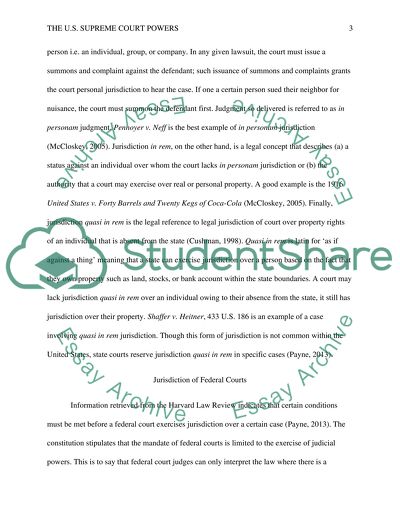The U.S. Supreme Court Powers Research Paper Example | Topics and Well Written Essays - 500 words. Retrieved from https://studentshare.org/law/1488453-acs
The U.S. Supreme Court Powers Research Paper Example | Topics and Well Written Essays - 500 Words. https://studentshare.org/law/1488453-acs.


